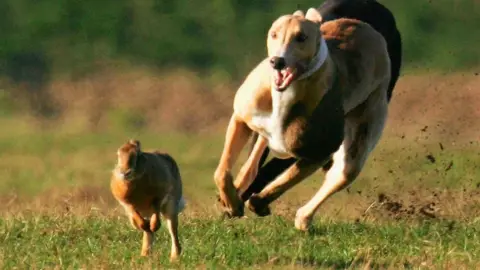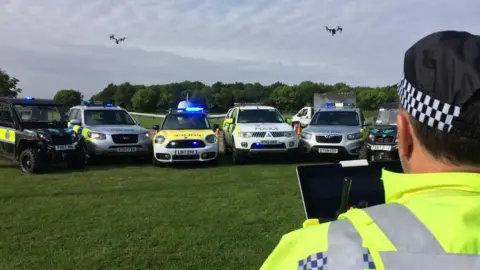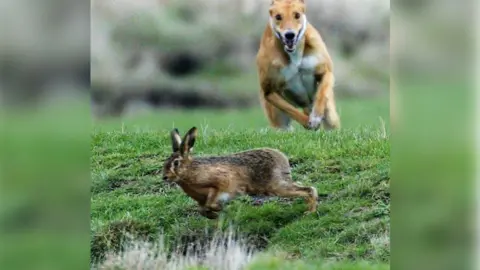Hare coursers warned as dispersal order issued in Lincolnshire
 Getty Images
Getty ImagesHare coursers have been warned to stay away from Lincolnshire as a dispersal order has been issued by police following a rise in incidents.
The order is in place until 10:00 BST on Monday and comes after a number of notices were issued by police last month.
Under the order, suspected hare coursers can be told to leave the county, and face arrest if they return.
Lincolnshire Police said those caught offending face losing their dogs.
Last month the force said it had been receiving "a high number of reports" with 15 recorded in one day on 29 December in the Boston and South Holland area.
In a tweet on Sunday, officers said: "We will seize all dogs and vehicles of anyone found hare coursing and we will apply to the courts for forfeiture."

On Tuesday, the government announced tougher sentencing and improved police powers as part of a new legislation to crack down on the illegal activity.
Lincolnshire is one of the areas most frequently targeted by coursers due to its flat, rural areas.
More than 1,000 suspected incidents were reported in Lincolnshire between December 2020 and February 2021.

 Christopher Furlong/Getty Images
Christopher Furlong/Getty ImagesWhat is hare coursing?
- The coursers will walk along the field to frighten the hare into the open
- The dog catches the hare and kills it by "ragging" it - shaking the animal in its teeth
- The dogs - usually greyhounds, lurchers or salukis - are on a slip lead, threaded so it can be easily released
- The dead hare is usually left in the field or thrown in a ditch
- Since 2005, hare coursing has been illegal throughout the UK. The Hunting Act 2004 makes it an offence to hunt wild mammals with dogs
- Coursers are often engaged in illegal betting involving large sums of money and the dogs involved can also be worth thousands of pounds
- Traditionally hare coursing offences start to rise in the autumn after crops have been harvested, and continue until the end of the season in spring
Source: Lincolnshire Police

